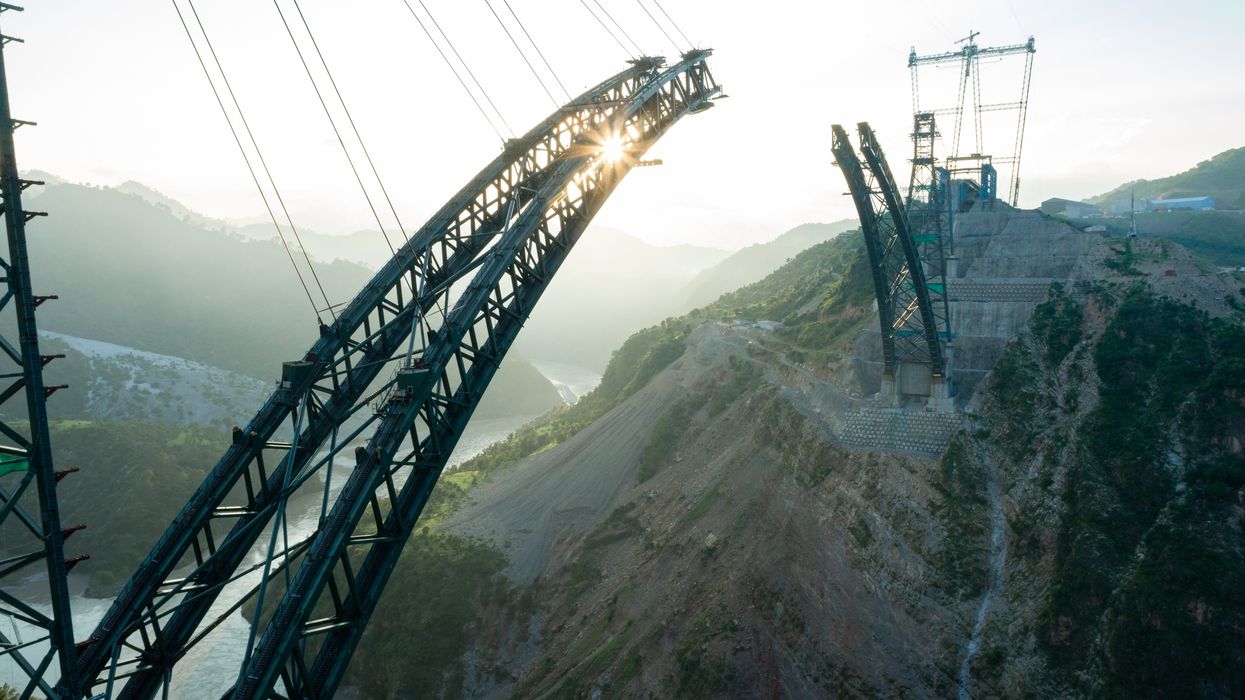Taylor is a mediator, developmental psychologist, civic dialogue trainer and member of Mormon Women for Ethical Government.
Last summer, as I taught a conflict resolution skills workshop at a faith-based university conference, I did not hesitate to seize the moment when two class participants publicly conflicted with each other. An older woman had taken offense at being called a “Karen” by a younger participant who had privately shared with me that she was neurodivergent and struggled reading social cues. Rather than shy away from the tension, I carefully listened and helped guide the two parties towards a reconciliation in front of the class using the bridge-building principles we had just discussed.
In a very real way, I link this type of public but personal reconciliation to bolstering the great American experiment of democracy. Whether at church, in our schools, at work, in our neighborhoods or at home, bridges are built one human connection at a time.
Paralleling my faith-based conflict experience, Rep. Derek Kilmer of (D-Wash.) witnessed polarization in his own community when fights began to break out at the local YMCA over political disagreements. To address widespread need for civic bridge-building throughout the country, Kilmer and a bipartisan group lawmakers are supporting the Building Civic Bridges Act to support training and research on civic bridge-building throughout our country. This bill explicitly focuses on bridging divides through community-focused projects, relationship building and sustaining, or addressing the root causes of polarization through ready channels such as AmeriCorps, which is already active throughout communities across the United States.
We have reached a tipping point and find ourselves with an opportunity for constructive action.
Given this national source of positive momentum, I believe this is the very time to take deliberate action to join this effort to renew hope, reinvigorate dialogue and reconcile our differences through civic engagement. There is so much we can do to change the course of our national trajectory if we choose to support constructive steps currently in the making.
From my perspective as a mediator, I am heartened every time I train another person to approach difficult conversations with curiosity, humility and skill. I get to watch the magic come alive when someone not only listens to a political rival but then has the opportunity to share their own views without fear of reprisal. Since 2013, I have been teaching, training, and researching about peace and conflict resolution because I know that peace is woven into the fabric of our lives one constructive interaction at a time rather than willed into existence on a whim or coerced from above.
Through my doctoral research of families who experience religious and political differences, I have learned firsthand that certain types of families thrive despite their differences. They manage to maintain strong social cohesion amidst difference. When family members demonstrate warmth, empathy and respect for each other’s autonomy, members tend to thrive. At heart, I believe that most Americans want peace with each other but don’t know where to begin. We must start at the very foundations for connecting our lives with others. We learn to listen to someone, share our personal views without attacking, and seek common ground because that is the foundation of our democratic society.
Rather than surrender to fear and negativity from within and without, we can reposition ourselves as the America that sets an example for other countries to follow around the world. Over many decades, the United States has spent tens of millions of dollars through the National Endowment for Democracy to support civic bridge-building and foster social cohesion in other countries, recognizing its foundational importance to strengthening democracy. It is time for some of that work to be done here at home.
Let us turn from our skepticism toward constructive action to create the very societal conditions we desire. May we each do our part to support efforts to preserve, promote, restore, and enhance the freedom and societal connection that lie at the foundation of American society. I support the BCBA because I know that actively creating the conditions that facilitate peaceful processes, social relationships, and even critical national outcomes requires effort and engagement at every level of society, beginning one human interaction at a time.



















Marco Rubio is the only adult left in the room